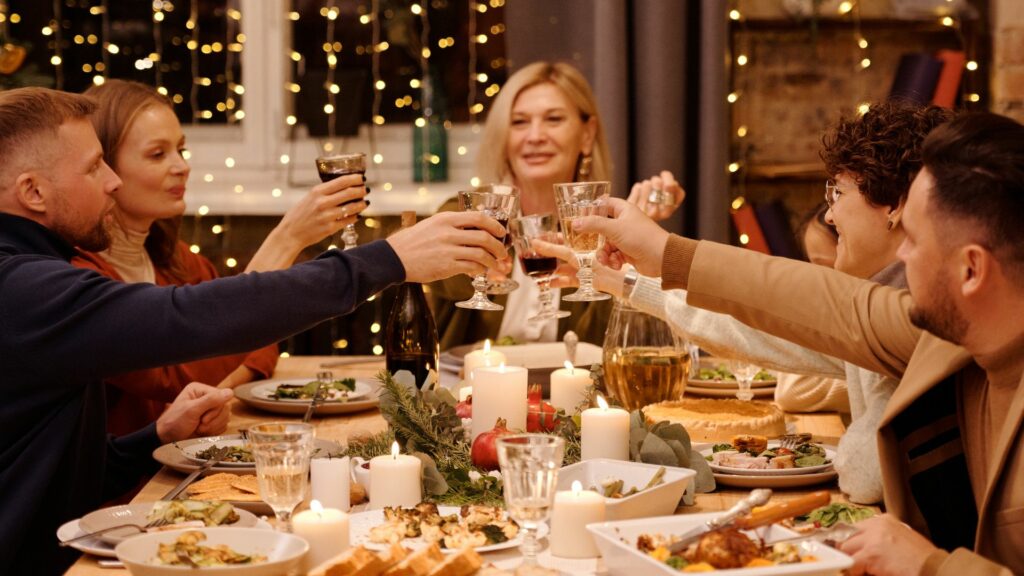Belgians are increasingly in favour of spending time together rather than in the kitchen, with many opting for ready meals and delivery services over the festive season, L'Echo reports.
Major chains revealed that there was a particular preference for meat platters, fondues, raclettes and other festive 'convenience' dishes during Christmas and New Year, compared to cooking meals from scratch.
Colruyt's delicatessen section recorded growth of almost 10%. Raclette sales also increased significantly, with Hal's retailer selling no less than 55 tonnes in the week leading up to Christmas, according to L'Echo.
At Aldi, the popularity of stuffed roast turkey rose 25% compared to 2022. By contrast, Carrefour saw greater sales of salmon, oysters and lobster, as well as meat and fondue platters.

Credit: Belga / Bruno Fahy
In terms of drinks over Christmas and New Year, champagne is still popular but consumers are also finding other sparkling wines more appealing. "Some bottles have seen a seven-fold increase in sales," said Aldi spokesperson Tine De Keersmaker. Meanwhile, Colruyt marked a decline in the popularity of Prosecco as prices for the drink go up.
Moreover, non-alcoholic drinks are on the rise. "We sold 20% more volume during Christmas week than in 2022. In non-alcoholic spirits specifically, we sold three times more than in 2022," a Colruyt spokesperson stated.
The festive period also saw a spike in online shopping; Delhaize reported a 58% increase in online orders in the week leading up to Christmas. At Colruyt, Christmas week saw over 85,000 orders at Collect&Go – 10% more than the group's expectations and the highest for a single week since the pandemic.
In fact, 36% of Belgians had already ordered their shopping online at least once by mid-December, according to the Food Trend Report 2023 published by the Takeaway platform and reported on by La Libre. The report on eating habits and the food delivery ecosystem stressed that this most likely resulted from the pandemic.
Making up for lost time
During the health crisis, the growth in online orders accelerated as restaurants were closed and many avoided supermarkets for fear of contracting Covid-19. Furthermore, "having deliveries made it possible to create quality time with the family. Those who weren't doing it before have discovered it," noted Siska de Lombaerde, Belgium's Takeaway manager.
This observation was confirmed by Herman Konings, an expert in consumer psychology who contributed to the Takeaway study. "It's the first law in psychology, biology and economics: what becomes rare becomes precious, like family. We missed our loved ones during Covid. Today, delivery services allow us to save precious time and devote it to our loved ones," he told La Libre.
Related News
- Brussels e-shop launches raclette delivered to your door
- How soon before robots are making deliveries in Belgium?
Konnings added that in the aftermath of the pandemic, people have become more stressed and face greater work pressures and are back to commuting. They therefore have less time and are less willing to devote time to shopping and cooking.
As much as a third of Belgians were willing to order in for Christmas and New Year so that they could spend more time with family and not spend too much time in the kitchen – especially in towns and cities, and especially young people. "This was completely unimaginable five years ago," Konings states.
According to the Takeaway survey, 13% of Belgians will no longer want to do their own supermarket shopping in five years' time. This figure is even higher among younger shoppers.

